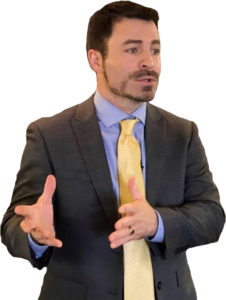By Steve Brawner
© 2014 by Steve Brawner Communications, Inc.
How long could your family pay for today’s needs with tomorrow’s dollars before it would start to catch up to you? Congress is doing something like that, again.
The Highway and Transportation Funding Act of 2014 would provide extra highway funding for 10 months by pulling money from future revenues through a tactic known as “pension smoothing.” This allows employers to delay contributing to their employees’ pension plans, thus raising the employers’ taxable incomes now. Under a formula, they’ll make up the difference later, reducing their taxable incomes then, and at that point a future Congress will have to budget for that lost revenue. But that’s a problem for the future Congress.
The House of Representatives passed the $10.8 billion bill this past week, with all four Arkansas House members voting yes – which I guess they had to do, because the alternative was a train wreck. The Senate is expected to vote on the matter as early as this coming week.
This is happening because we’ve reached yet another unnecessary fiscal crisis. The Highway Trust Fund, which reimburses states for highway costs, will be dry within a couple of weeks – the result of too few dollars funding too many projects. The Arkansas Highway and Transportation Department (AHTD) has already delayed some contracts in case that happens.
Money flows into the fund as a result of federal highway laws passed periodically by Congress. In the past, these have been five- or six-year deals so states could make long-term planning decisions. It takes, after all, a long time to build a highway. The most recent, MAP-21, lasted only two years, and now it’s expiring. The Highway and Transportation Funding Act would extend MAP-21 only to May.
Highways are funded mostly through fuel taxes. These are easy to collect, they don’t require that much bureaucracy, and they are considered to be fair because they are user fees. The person using the government service, the highway, is the one who pays for it.
But the federal fuel tax has not been increased since 1993, which means inflation has eaten away at it. Meanwhile, cars have become more fuel efficient, so we’re buying fewer gallons to drive the same distance, thereby paying even less in fuel taxes. At the same time, construction costs have risen.
There’s waste in the highway system, of course, but even if all of that were eliminated, the country still would be investing far too little in its aging and decaying infrastructure. According to the American Society of Civil Engineers, the average bridge in America is 42 years old.
For now, the easiest, quickest, most efficient way of increasing highway funding is raising the gas tax, but politically that’s a tough sell. Even the Connecting Arkansas Program passed by voters in 2012 exempted fuel as part of its half-cent sales tax. Meanwhile, the fuel tax faces an uncertain future. As Scott Bennett, AHTD director, points out, reducing fuel consumption is a national priority, so how can consumption continue to be the primary way we fund highways? The Obama administration is suggesting letting states put toll booths on interstates – an inefficient way of collecting money that is inconvenient for drivers. Oregon is testing a vehicle miles traveled tax, where drivers’ mileage would be tracked, and they would be taxed accordingly.
It may be that the only solution now is for states to bear greater responsibility for maintaining and constructing the nation’s roadways. According to Bennett, 70 percent of Arkansas highway construction funding comes from the federal government, but other states pay more of their own way.
Arkansas voters have shown a willingness to pay for highways. In addition to the Connecting Arkansas Program, they also voted in 2011 for the Interstate Rehabilitation Program, which funds interstate improvements through a bond issue. Those two programs are funding $3 billion worth of work. On the other hand, they only apply to 4 percent of the state’s highway miles.
What do you think? Raise fuel taxes? Build toll booths? Track how far (and maybe where) we drive? Let the states take care of it?
Something has to happen. There are only so many times future dollars can pay for current work.
